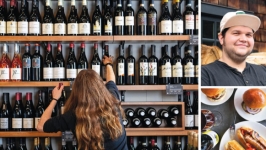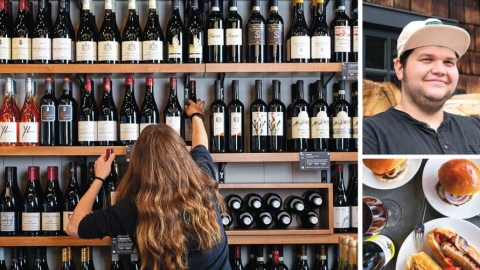Jason Zuliani: Founder, Dedalus Wine Shop, Market & Wine Bar
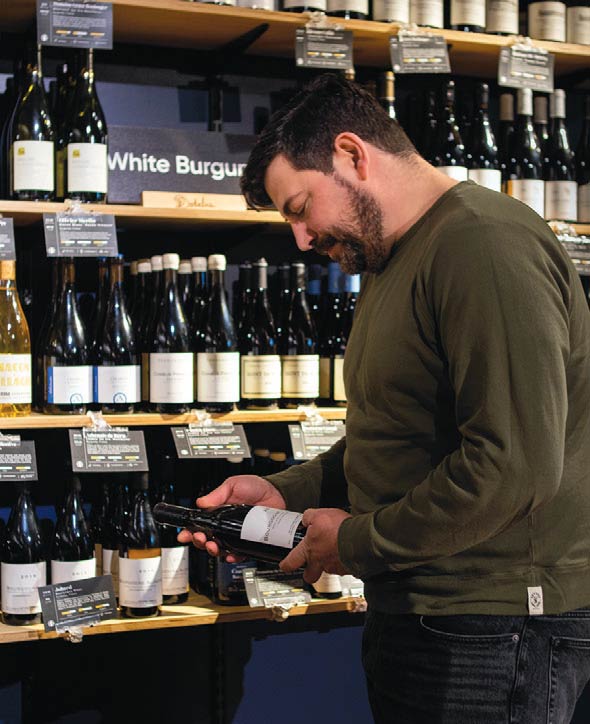
“I really wanted
wine to be much
more experiential
than it was in
a standard
bottle shop.”
–Jason Zuliani
Jason Zuliani, founder of Burlington’s red-hot wine bar and market, studied philosophy and literary theory at UVM. While seeking a name for his nascent wine business, his eyes fell upon a copy of James Joyce’s Portrait of the Artist as a Young Man. (That Jason had the novel on his tech company desk also sheds light into his philosophical nature.) Named after Joyce’s protagonist, Dedalus was born and northern Vermont’s wine scene has never been the same.
Let’s dive right in. How did you evolve into a master purveyor of wine?
Jason Zuliani: My grandfather and my parents were in the hospitality business, so food and wine have always been integral to our family life. When I moved to Vermont for college, I ended up working at the New England Culinary Institute (NECI) off and on from 1998 to 2007. I started out as a host and ended becoming a server, a manager, and then ultimately became the wine and beverage director for the whole school.
At NECI, I had the opportunity to encounter wine with a lot of depth. It was the first time that I had encountered people who took wine seriously and experienced anything that even resembled mentorship. I had worked in a lot of restaurants, but at NECI, at the end of the night, it wasn't about pounding a drink. It was about tasting five or six wines and talking about them. It was a total shift for me.
True or false. Dedalus was actually launched in a back room of the tech company you had founded on Battery Street.
JZ: True! I found I really missed the world of wine. So after a few years of running this tech business, I ended up convincing my partners to let me license an unused conference room in the back of one of our spaces. I started the wine business with my friend Tim Banks who had been at NECI with me. We took over this back room, licensed it, and bought $5,000 worth of wine. The state law required us to be open so we opened on Wednesdays from 5:00 to 5:15 p.m. We didn’t have a cash register; we couldn’t process credit cards; and we couldn’t make change. People had to pay cash. It’s pretty funny when I think back on it. That was 2007.
And then you decided to go all in on Dedalus.
JZ: During the last couple of years of owning that tech business, I was pretty fried and knew that I wanted to do something else that involved wine. All along, I had been developing my vision and decided to invest more in the business. Then a friend called me up in 2017 and said, “Hey, Burlington Furniture on Pine Street is moving. You should go look at the space.” It was enormous, but I could see exactly what I wanted to build there. And so on a wing and a prayer, I convinced a handful of tremendous investors to back me.
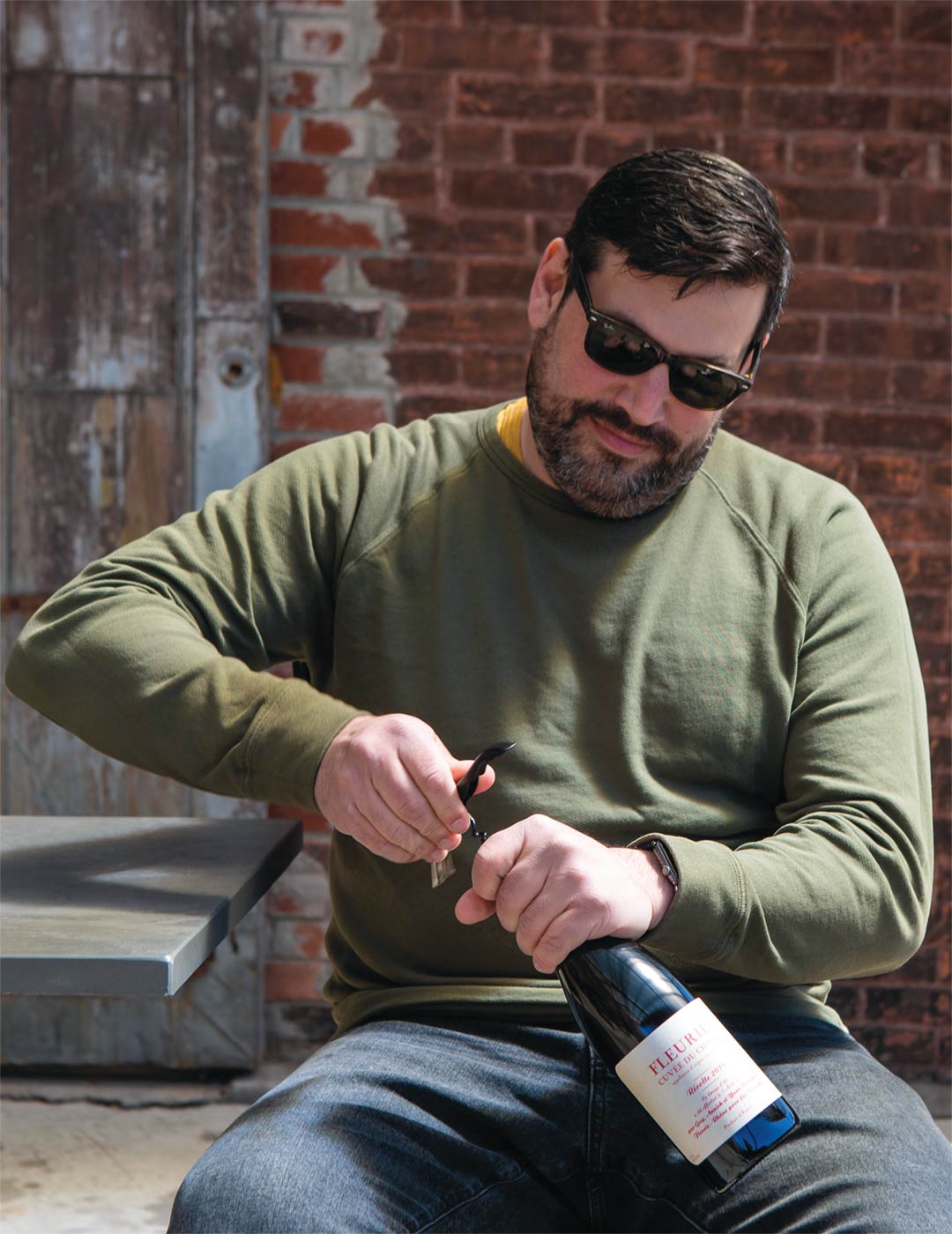
“We follow a set of values about how the wine is made. What kinds of inputs go into the wine? Is it made responsibly and sustainably?” –Jason Zuliani
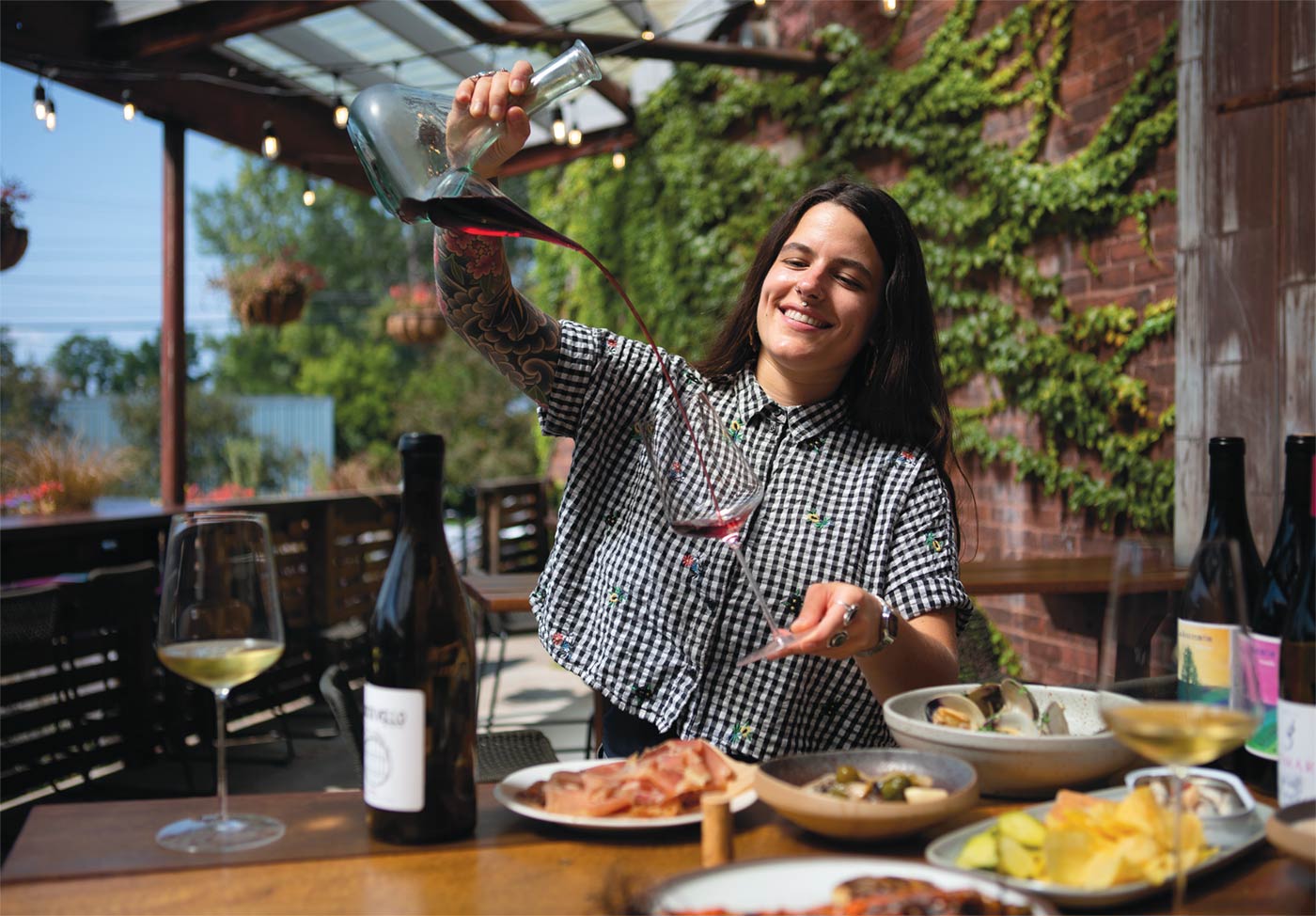
Wine Bar manager Emmi Kern demonstrates the perfect aeration pour on the outdoor dining deck of Dedalus Wine Bar.
Describe that vision you had.
JZ: I was intrigued by people such as Lulu Peyraud and her husband in Bandol, and the story of them resurrecting that region of France, and how when you visit them, she suspends a leg of lamb from a chain in a hearth oven and waddles around with magnums of her wine. And that’s your experience, right? It’s this sort of organic, beautiful place-wine-food kind of thing. I really wanted wine to be much more experiential than it was in a standard bottle shop. And also, in a kind of stealthy way, I wanted to integrate hospitality within a retail environment.
How do you accomplish this?
JZ: We travel and visit small producers all around the world. That’s crucial for us. When I’m lucky enough to visit the producers that are friends of mine, no matter where I am in the world, the experience is at the table. It’s convivial; it’s fun. You’re eating chevre from the farm down the road with wine that still doesn’t have a label on it. And the saucisson his neighbor made might be a little moldy, but
who cares?
You have a world of wine from which to choose. What guides your selections?
JZ: We follow a set of values about how the wine is made. What kinds of inputs go into the wine? Is it made responsibly and sustainably? We also look at production levels. The vast majority of the wines we sell are under a thousand cases in terms of production. I want to introduce people to these small-scale producers that are really focused on uncovering the place and the culture that surrounds it.
So you’re creating an experience rooted in the stories and tastes of a place.
JZ: Yes! And we offer that through our market. Our staff is well trained and knows many of our producers. We have the cheese counter with regional cheeses, charcuterie managed by somebody who is deeply passionate about it the way I am with wine, and then we have a wine bar so people can taste the things that we want them to experience. All of this builds trust.
Education is clearly a part of your mission.
JZ: For sure. Brittany Galbraith, our director of education, is a certified sommelier pursuing an advanced certificate. She educates our entire team. She’s built boot camps that everybody who works for us has to go through and runs blind tasting groups. It’s pretty intensive, to be honest, but it pays dividends just in terms of what we can offer the customer. We also do classes and events for customers.
What’s another hallmark of Dedalus?
JZ: We were the first shop in Vermont and one of the first shops in the United States to sell natural wine. Those are wines made with minimal intervention and no additives. I remember how hard it was at first to get people to buy the wines. We don't self-identify as a natural wine shop, but we certainly have one of the largest and most wellcurated selections anywhere. And these natural wines remain very attractive to a whole different customer base, including people who were drinking Bordeaux and Napa cab now say, “Tell me about this natural wine thing.”
Named after James Joyce’s protagonist in Portrait of the Artist as a Young Man, Dedalus was born and northern Vermont’s wine scene has never been the same.
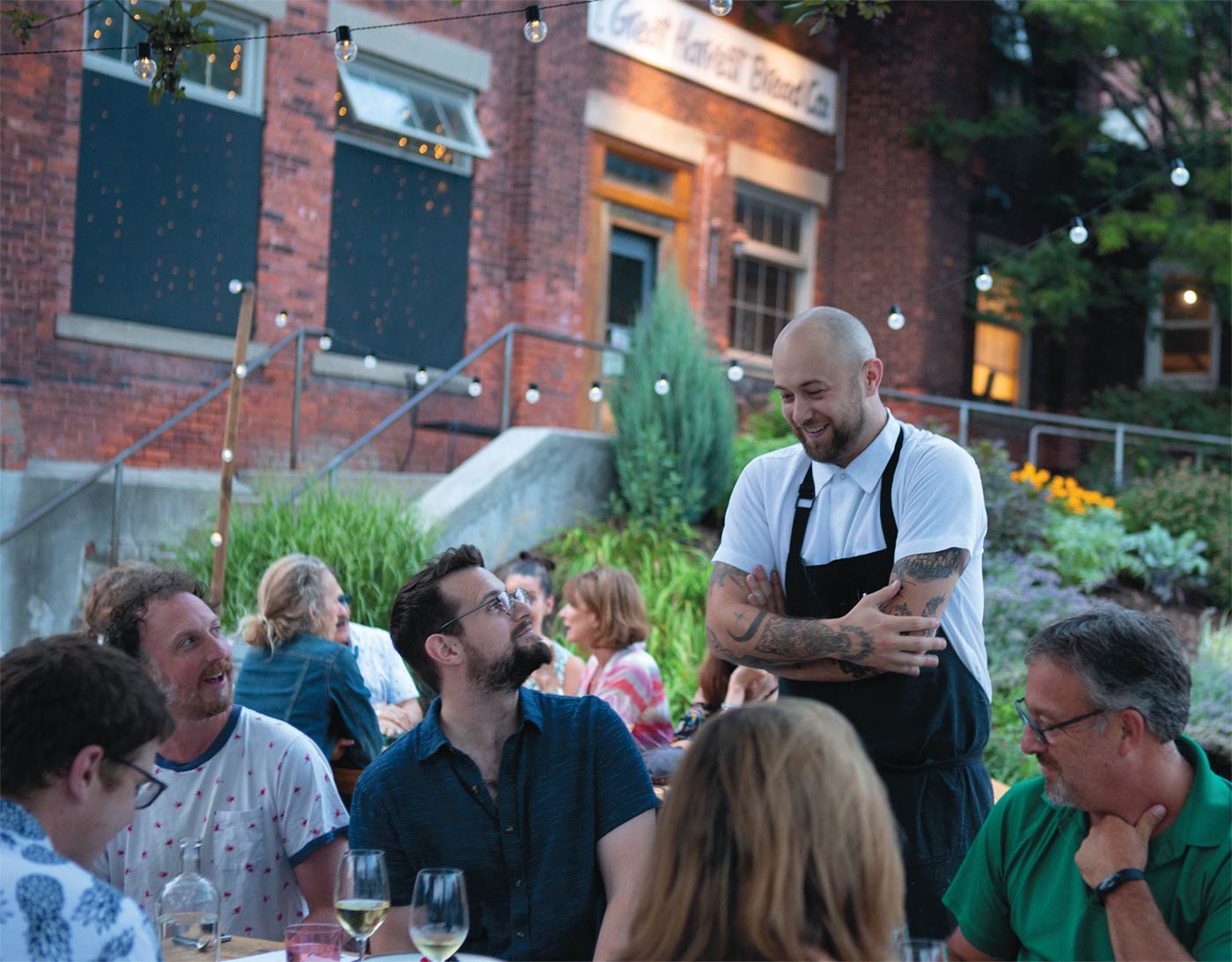
We know that climate change is impacting wine in scary ways, but is it opening up any new wine regions?
JZ: I think that we’re going to see all kinds of domestic production that just wasn’t possible here 15, 20 years ago. That’s made cold-climate grapes interesting in so many ways because it’s forcing us to rethink where good wine can be made, how it can be made, and what those varietals need to be like. And I think we’ve got a lot of great examples of that in Vermont, which is really nice to see.
Upcoming trends that excite you?
JZ: The kind of wines that we tend to trade in—the smallproduction, handmade wines—are becoming a part of more people’s table and social life, and more culturally relevant. We’re working with Australian wines for the first time in a real way, and that’s not because we’re into super-extracted, new oak fruit bombs. We know small producers who are making a bright, acidic, minerally Riesling, or a white burgundy-class chardonnay, and a beautiful Cinsault that we can sell for less than 25 bucks a bottle that drinks like it was made in southern France. It’s poppy, vibrant, and alive, and it’s responsibly made. I also think we’re going to see a comeback with a whole group of younger winemakers in California, Colorado, Spain. The new Spain is definitely a real thing. There are a lot of great young growers who are uncovering the lost traditional methods and unearthing old plots of vines.
So, you want a customer at Dedalus to leave feeling what?
JZ: Totally surprised and delighted by the experience. However, the experience at Dedalus has to be more than just the encounter in the store. The moment of truth is when they sit down at home, uncork that bottle, and pour out that glass. What I want for them every time is for them to be like, “Wow, this is totally worth it. That experience inspired me to take a risk on this bottle. And here I am drinking something that was totally unknown to me beforehand. My eyes are open and it is a delight.”
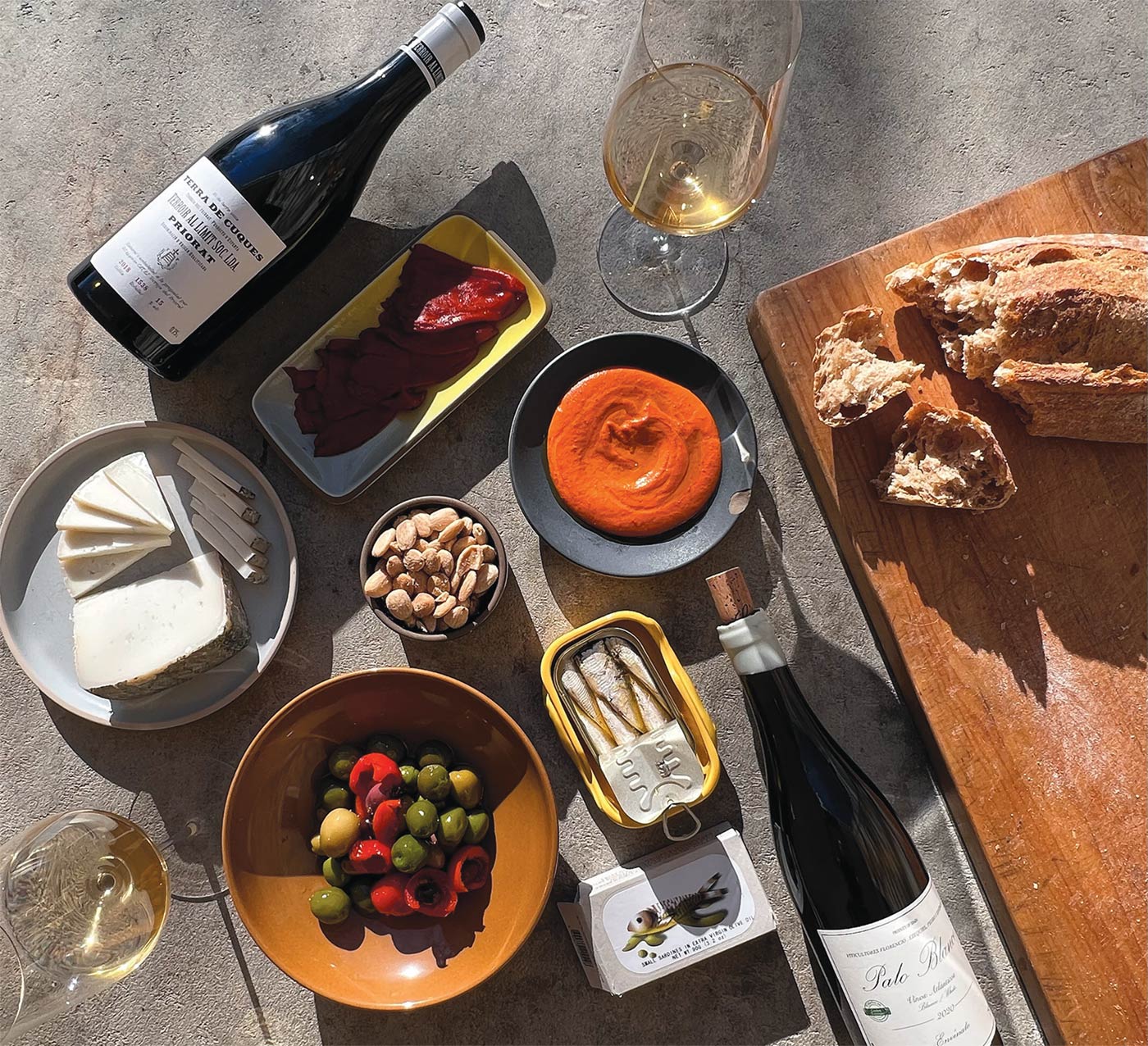
Wine bar guests can feast on small plate selections that pair perfectly with wines by the bottle or the glass.
How did you decide to branch out to Stowe and Boulder?
JZ: I’ve always wanted to build more of these places because what we offer is novel. Pre-pandemic, I was considering a handful of other areas to move into. When I heard that Harvest Market had shut down, I reached out to Donna Carpenter. Donna has been an advocate of Dedalus for a long time. It was very important that her shop went to somebody who’d carry the torch. Similar thing happened in Boulder. We ended up buying Cured, which was essentially a sandwich shop with a phenomenal wine selection. The owners wanted to find the right people to take over the space. We just want to be good stewards and be a part of whatever community we show up in.
Shifting gears completely, give me an ideal weekend with the family.
JZ: Food and wine are definitely a big part of it. I’ve got two young kids, and my wife is a very good cook and an excellent baker. But an ideal weekend involves me doing most of that work because I love it and I don’t really get to do it as often as I’d like to. So I try to cook every weekend.
What drives the dinner: the wine or the food?
JZ: Both, really. I have the most chaotic wine cellar on earth, probably because I don’t spend any time organizing it. But I’ve been buying wine professionally for a long time, and as an amateur before that so I have a lot of it. I usually have to open a bottle of wine to figure out what wine we’re going to drink with dinner.
It’s a nice summer weekend. What’s going to be happening at home?
JZ: We’ll be out in the backyard, with the grill on, and a bunch of people. It’s a bit of a cliché, I suppose, but we’ll probably be drinking cold red wine out of a magnum. My other passion is music so the music will probably be too loud, but that’ll get the neighbors to come over. My kids will be running around, knocking things over. We’ll grill a bunch of seafood, shuck a load of oysters. And I just love cooking over an open fire. We just bought arrosticini grills. Arrosticini is an Italian street food, basically skewered meat cooked over these super-hot wood coals. We’re going to do arrosticini this summer at Dedalus, on the green space that is sort of a wine garden out front. It’s going to be fun!
Accompanied by plenty of unique wines from amazing small producers.
JZ: Doesn’t get any better than that.
5
rapid fire questions
for JASON ZULIANI
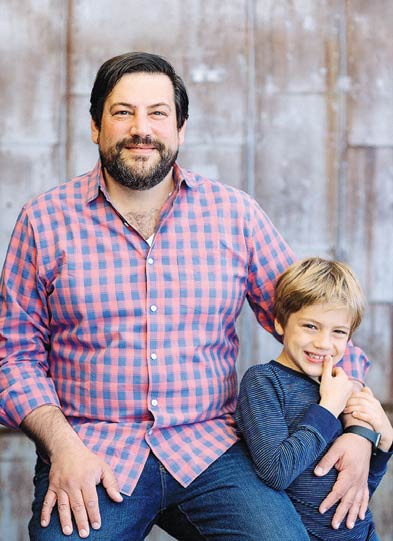
Breakfast today?
Breakfast today was on the run. I had a Meyers Montreal spice bagel with some French butter. But at home, it’s usually a bit more leisurely. I know it’s so boujee, but I make my own pour-over. I’ll make a couple of 6-minute eggs with a nice piece of baguette from our shop and take a few minutes to enjoy the meal.
Favorite childhood meal?
My grandmother used to make fusi, which is a flat pasta that gets folded into a triangle. She would make that with a long and slow red wine–braised meat sauce. She would cook for a village, even though there were only six of us. She put these big platters on the table, and we would all just kind of dig in. My dad also made excellent gnocchi.
Cake, pie, or cookies?
Strawberry rhubarb pie.
Guilty pleasure?
When I’m on my own, I generally reach for something that I don’t want to share, because it’s just too absurd, or rare, or whatever, and I default to cooking myself a ridiculous piece of meat of some sort and some asparagus.
Late night or pre-bed snack?
I’ve stopped doing that, but when I did do it, it was usually cheese and prosciutto. Which is why I stopped doing it.


